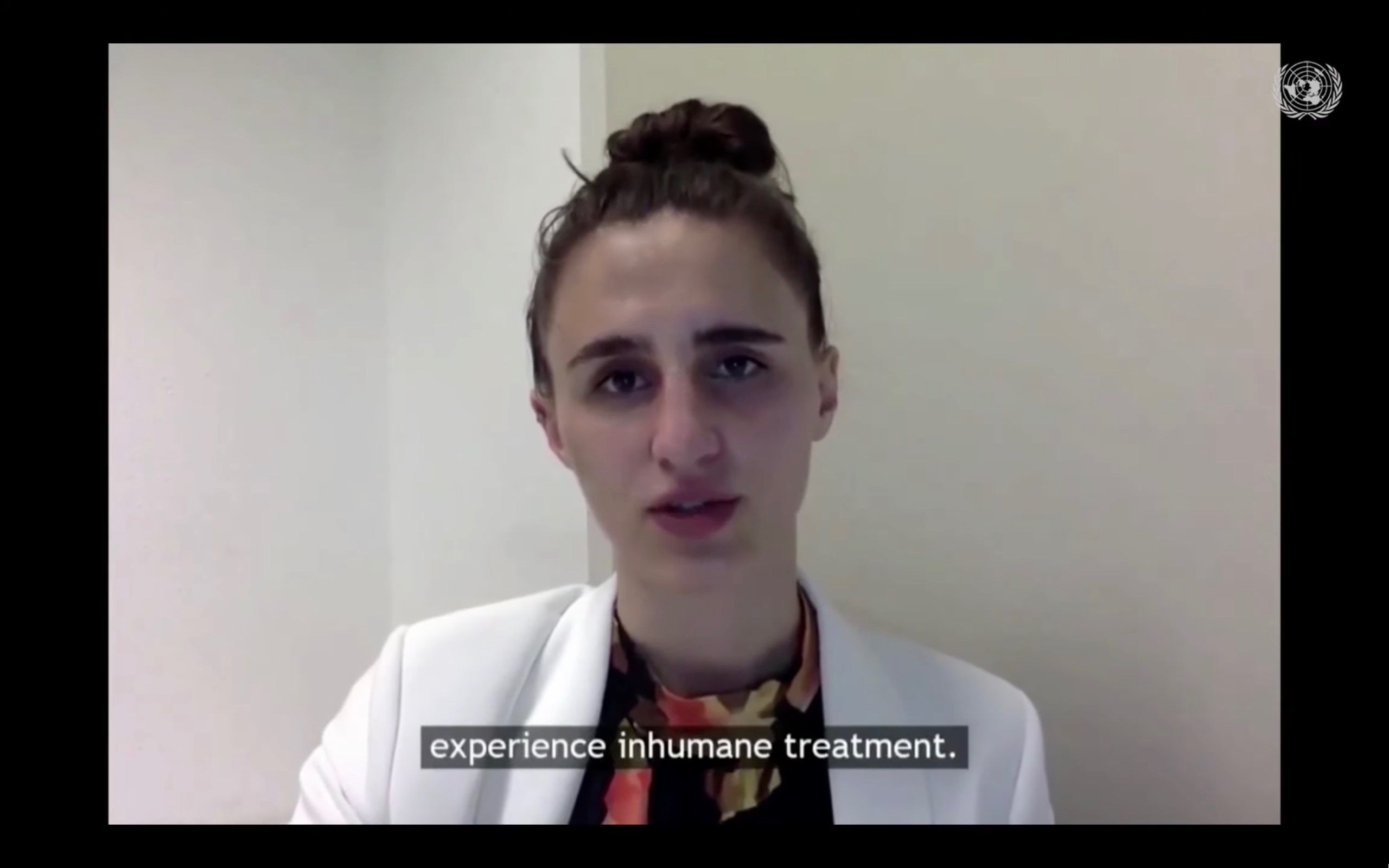The 48th Session of the United Nations Human Rights Council
(13 September to 8 October 2021)
Item 3: Promotion and protection of all human rights, civil, political, economic, social and cultural rights, including the right to development
Oral Statement of International Organization for the Elimination of All Forms of Racial Discrimination (EAFORD)
Delivered by: Karin Heisen
Thank you, President.
We welcome the Special Rapporteur’s report on the “Nexus between displacement and contemporary forms of slavery.”
Contemporary slavery can only be prevented if States fix the structural factors that cause displaced persons to be vulnerable to exploitation.
We draw attention to the persisting protection gaps, including in developed countries who are party to the Refugee Convention. The Global Slavery Index indicates that 63.6 percent of countries either do not have domestic laws or systems that protect asylum seekers or refugees, or systematically detain, arrest, deport or discriminate against them. [1]
EAFORD and the Geneva International Centre for Justice are gravely concerned by the vulnerability of displaced persons with irregular or uncertain migration status. For instance, Australia, despite being one of the strongest responders to contemporary slavery, [2] subjects asylum seekers coming by boat to indefinite detention in offshore processing sites where they frequently experience inhumane treatment. This leads to a surge of arrivals by plane and bridging visas. In the long term, bridging visas creates a protection gap that increases forced labor and labor exploitation.
Special Rapporteur, how can civil society organizations better pressure States to fill persisting protection gaps for displaced persons?
We urge:
- Member States to improve restrictive domestic laws and regulations regarding displaced
persons, including reception conditions, - States to ratify the Refugee Convention and Stateless Persons Convention,
- And all parties to withdraw all work-related reservations to these Conventions.
Thank you.
[1] https://downloads.globalslaveryindex.org/ephemeral/GSI-2018_FNL_190828_CO_DIGITAL_P-1631643922.pdf
[2] https://cdn.globalslaveryindex.org/2019-content/uploads/2019/07/17123602/walk.free_.MAF_190717_FNL_DIGITAL-P.pdf
Justice, Human rights, Geneva, geneva4justice, GICJ, Geneva International Centre For Justice









